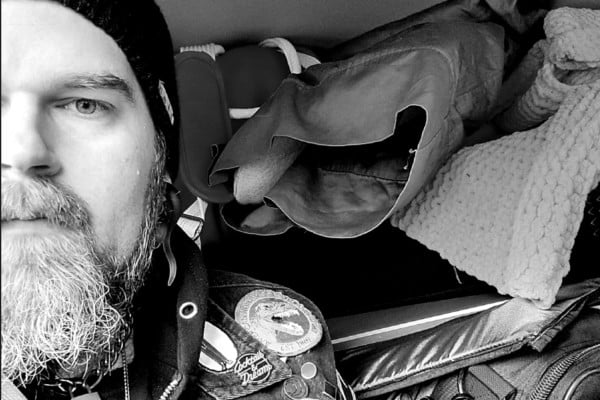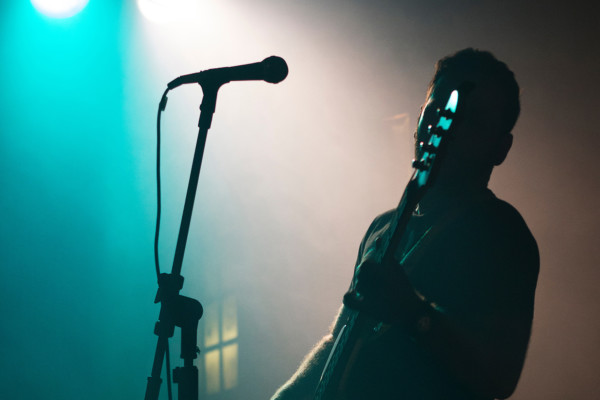Tips for Being a Professional Bassist

Q: I often wonder what kinds of little nuggets of wisdom some of my heroes have that would help us mortal bassists in the trenches. Things we don’t even know that we should know, or wouldn’t have had the opportunity to learn. It might be a weird thing to ask (me not having an actual question and all) but, what kinds of tips and tricks might you have for the rest of us out here who aspire to become professional musicians?
A: What an interesting non-question within a question! I’m reminded of many moments during lessons or in a conversation where there is some tidbit of information one person takes for granted a, while completely blowing someone else’s mind. In addition to any little bits of information that different peers and teachers passed on to me that completely reframed the way I thought about something or approached something, I don’t know if I’ll change any lives here but let me contemplate and see if I can provide a list of tips, tricks, and tidbits (in no particular order), I hope something in here helps someone, somewhere!
In no particular order:
- Plan for the worst, hope for the best. Have backups of everything (within reason and within your budget). Know that, eventually, that battery will die, that cable will crackle, etc.. There might be construction on the way to the gig, did you leave yourself enough time to get hung up and re-route? You get the idea
- Pack light and use well built luggage when traveling. Don’t just throw everything in a huge duffel bag you got at the Goodwill and then have to lug it around with you every day (no wheels… DRAG), realize that all of the gear you tucked in there got smashed and the zipper broke and all of your clothes are hanging out of it as it circles the carousel in the airport.
- When you transcribe, you don’t need to transcribe the entire solo/song. You can also focus on one ear-catching lick at a time. I get way more mileage out of taking one small lick I figured out and then experimenting with how to make it fit different chord types than I do figuring out every note of 15 choruses of Bird’s solo on Cherokee.
- If you’re struggling with something in the shed, break it into smaller chunks. I’m all about bite-sized chunks in the shed. Don’t get overwhelmed by and an entire page of diminished licks, or confused because you’re trying to play an obscure scale in broken 6ths over 3 octaves starting on your pinky. Break things into smaller, digestible and understandable chunks and work on ingraining and understanding them before marrying them to the next portion of the exercise. Spending hours confused in the shed won’t get you anywhere.
- Drop the books and scales once in a while. Play along with the music you love
- Drop the music all together once in a while. Make sure that you’re engaged in your life and in your relationships.
- You won’t be any better “if you just had that one more pedal or amp.” Have fun looking at gear but don’t let it distract you from learning your instrument. The right $20,000 bass never actually made any body play any better (with exception to the fact that you might want to actually play more, but you’ll still have to shed to get the music together).
- Be humble. Be cool to people. Take the moral high road but take the middle path when it comes to the ego.
- While you brag (for the 6th time) about that time you played a gig with Erykah Badu’s, cousin’s, friend’s band, people are thinking unkind things and writing you off emotionally. Impress them by your actions as a human and your music while on stage while remaining humble and kind. That leaves a lasting impression of the right kind. Even if you played with Erykah herself. Be cool. I know guys who might have played one gig with some heavies and you can’t cross them on the street without them name dropping about it. It gets old real quick.
- If you’re struggling with something like, “how do I sound good on rhythm changes when it’s just a repeating pattern over and over again.” Discover and internalize 3 or 4 different ways to play that pattern. Alternate them, by the time you repeat yourself, people will have mostly forgotten the first pattern you played. Eventually, you’ll be able to hear more.
- Learn your chord tones, as well as possible, and map them out over your fretboard. For every primary chord type (major, minor, dominant, half/fully diminished). If you can quickly understand the primary function of the chord, you can then make a workable chord scale without having even come across that chord before. (C7#9#5 (off the top of my head)…. some might say, “altered” but if you haven’t studied jazz harmony in depth, at the very least, understand that (a) it’s a dominant chord (1 3 5 b7 are the chord tones), (b) it has a #2 and a #5, and (c) I guess I could play within a scale of C D# E F G# A Bb… (Root #2, 3, 4, #5, 6, b7) and that would get the job done. While it might not be the scale that Chick Corea would use, it’ll mostly function well over that chord, and you can come up with it on the fly if you can easily spot the appropriate 1 3 5 7 and then fill in the blanks (2 4 6).
- Wash your hands. And take care of yourself emotionally and physically.
- Don’t feel “less than” when listening to players that are better than you. There is a spectrum and, not only are we are all on it, but everyone who’s better than you has been where you are at some point. Just get excited about knowing that there’s more to know and keep working on getting to know it.
- Brush your teeth. For real… nasty breath makes all kinds of the wrong impression.
- Be early.
- Be over-prepared.
- Diminished licks/chords got you down? Just play a Mixolydian scale b6, from the b6th (ie: Cdim7. move to the Ab and play Ab Bb C Db Eb E Gb Ab). It’s not the best jazz-school approved scale but you can do some cool stuff with it and it works well.
- Don’t ever argue with flight attendants or airport staff. You have zero leverage (unless you have a print out of some bylaws from that airline or FAA that make your case). Kindness and courtesy go a long way towards an uneventful trip.
- Use a solid and protective but slim and small soft case and carry your bass on the plane. Nine times out of 10, it’ll make it in the overhead bin. Often, if you’ve been sweet as honey, they might even give it an open seat if it doesn’t fit. Worst case scenario, it gets gate-checked, which is MUCH better than just checking it at the counter when you drop your bags.
- Don’t drink the coffee or tea on the airplane. The water tanks on those planes never get cleaned and, the older the plane, the more microbes likely live in there. Most airline crews won’t touch it, so I wouldn’t either. You can always ask if the used bottled water for the coffee/tea. It’s rare, but sometimes they will give you a knowing look and say, “actually yes. I wouldn’t drink it otherwise”.
- Bring nuts, fruit, power bars, etc. with you in your carry-on. A full day of travel can get expensive eating at airports and on the plane. Additionally, the food is usually packed with sodium and other things you don’t need which will usually leave you feeling puffy and generally icky.
- Drink tons of water on the plane. Preferably with a good pH balance. I like Icelandic water, if they have it. Avoid the alcohol and sweet stuff. Flying dehydrates you. You’ll feel better afterwards. Do a little research on pH balances of different water brands and what your body needs. Some of them don’t really do much for you.
- Try and remember the names of the sound/stage/hospitality crew and thank them afterwards. It’s a hard job. They are the first ones there and the last ones to leave and far too many musicians treat them like ‘the help’ without even the slightest sign of gratitude. Be better than that. P.S. Word travels fast in those circles about which traveling musicians are pains in the butt or high-maintenance (my wife and I call them indoor-kitties). It’s a smaller community than you might think
- Try teaching a bit. You don’t have to have all of the answers before you start. It’s a great way to learn and, if you’re insecure, keep your prices low. Charge more when you feel that your worth more but be available to your fellow musicians as a resource. There might just be something that you can impart and you’ll likely learn a TON in the process. It also helps you to quantify and organize your thoughts and music/educational philosophies.
- Go hear a LOT of live music.
- Don’t ask friends and acquaintances to be on the guest list. If they offer, great but we need to support each other. I know a ton of players who always hit people up for free passes to festivals, names on the list of their gigs, etc… but then are the first to complain that the masses aren’t supporting artists like they should. Walk the walk.
- These folks are putting a lifetimes work on display and leaving it all on the stage. Freaking pay the $5 (like you would hope they might).
- Traveling musician? Single? Out of control libido? 67% of the worlds population has herpes. Just saying. Be careful out there.
I hope this helps!
Have a question for Damian Erskine? Send it to [email protected]. Check out Damian’s instructional books, Right Hand Drive and The Improviser’s Path.



